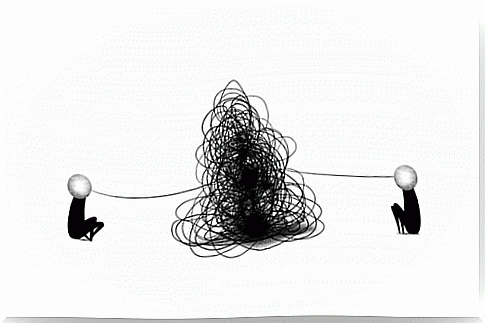Psychologists Can Offer Valuable Help, But They Are Not Miracle Healers

Psychologists perform a very important and necessary function in our society. However, there are still some unfounded beliefs, myths, and expectations that obscure the true purpose of the advice given by these professionals. The most common and flawed vision about the path to therapy is the belief that psychologists can work miracles. But that couldn’t be further from the truth: Psychologists are not miracle healers, they help people to help themselves.
Many people are disappointed when they turn to these professionals and that illusion is taken away from them. In addition, there are some important decisions to be made beforehand: First, clients need to find a psychologist who is a good fit for them and their situation. On the other hand, it is necessary that they have an open mind and a willingness to work during therapy. They are the ones who must strive to achieve their goal. The psychologist is there to help.
“You choose where and by when, because your path belongs exclusively to you.”
Jorge Bucay
Psychologists don’t work miracles, they just give a push
It is true that psychologists do not work miracles, no matter how badly they may want to. So we shouldn’t sit on a stretcher and expect that all problems would be solved with a magic pill. There is no anesthesia and our participation is required.
In addition, some clients may not want to return to the psychologist after completing one or more sessions there. More than anything, this is because they feel uncomfortable with the psychologist – or the very thought of needing them. Ultimately, he asks difficult questions, encourages the patient to see the world differently, or lets him see that he is responsible for what happens to him. Psychologists offer valuable help, but responsibility remains with the client.

Many clients go to a psychologist’s office, complain, and feel like the victim. But soon they have the feeling that the therapist is trying to remove the protection of their victim role. This happens, for example, when someone comes to him because his partner is unfaithful, and the psychologist then asks: “And why are you still in this relationship?” That may be uncomfortable.
Others become resistant in the course of therapy and reject the advice of the specialist as “no help” because he basically does not say what they want to hear. Perhaps they want a magic formula that will make the partner stop being unfaithful, or acceptance of their own behavior. When faced with the realization that the most viable option is to end the relationship, it can lead them to shift their frustration and rejection onto the therapist.
A psychologist makes the patient think about their situation so that they come to their own conclusions. If these do not match his wishes or how he sees reality, it is very likely that he will reject the psychologist and discontinue therapy. Incidentally, this does not only apply to relationship problems and is based on the false assumption that the psychologist is there to solve problems. This expectation is unrealistic and usually a reaction to fears and insecurities: Psychologists can help to come to terms with conflicts, but cannot bring back to life what is coming to an end.
What role do we as patients play in therapy?
It is important to be aware not only of the role of the psychologist, but also of ours, that of the patient. First of all, as we said earlier, psychologists don’t work miracles. They are there to listen, to provide tools, and to open up the field of possibilities that the patient sees in an overly narrow focus.

A psychologist will never tell us what to do or make decisions for us. Rather, we work with him on our insecurities or reduce fears. That means removing the barriers that keep us from achieving our goals. That’s what psychologists do. They can give us the tools we need to feel better about ourselves, increase our confidence and self-esteem, help us overcome anxiety, and improve our relationships with others.
That doesn’t mean that you have to work alone in therapy. There are several effective decision-making strategies out there, and a few can be learned and used in minutes. In this sense, the psychologist may serve as a blackboard to organize ideas or to dive into various hypothetical situations. But he won’t tell us what to do, nor will he tell us what he would do if we were, simply because he is not in our skin. With the help of the psychologist, however, the decisions we deal with may become easier and less painful.
We are the ones who dare to take the step, decide and act. Because only we know what to do, only we are aware of what would make us better.









